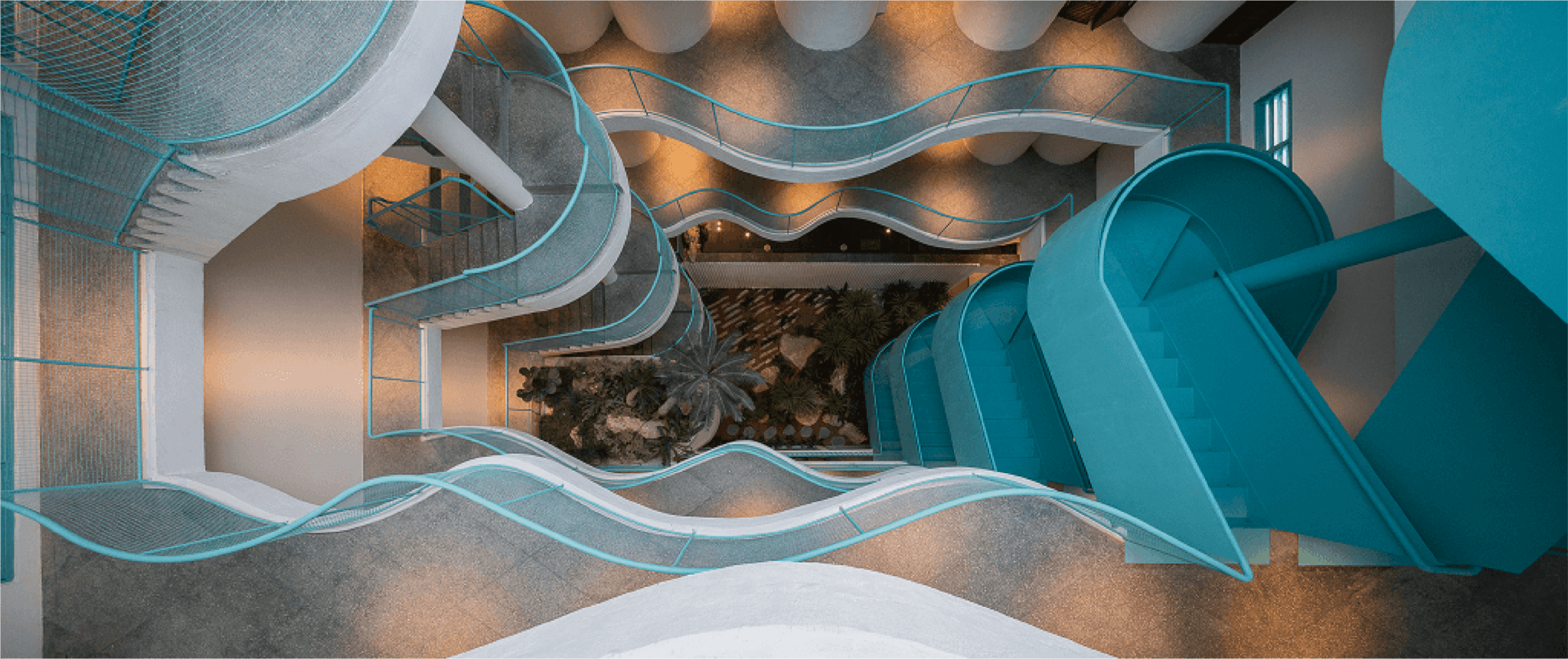Vietnamese architectural studio D1 attempts to achieving sustainability by returning to traditional roots when designing boutique Hotel des Bouton in Da Nang.
Humans are born to be biophilic, that is, bearing the love of nature. According to American biologist Edward O Wilson (1984). Being near nature makes us happy while being distanced from it decreases our health and wellbeing. This is why after losing touch with nature amidst the hustle and bustle of urban life. We become creatures that are perpetually tired and always restless. This biophilic hotel calls travellers back to their roots
Hotels, where people run to for a brief feeling of sanctuary in order to recuperate, need to incorporate green spaces first and foremost. And how can we “go green” without making the design too cluttered that it compromises the beauty of the hotel? This boutique Hotel le Bouton in Da Nang City, Vietnam, provides a great example.
Standing proudly on the busy Tran Dinh Dan Street of Da Nang, the Hotel Le Bouton is a graceful attempt at achieving sustainability by returning to traditional roots.
Traditional houses in Hoi An always have a yard, a pond, a miniature bonsai to invite the sunlight and green up the space. The houses are always filled with fresh air, making everyone relax and feel at ease in the connection with nature. D1 brought this idea into the design of Hotel le Bouton.
Taking inspiration from nature, the Hotel Le Bouton is built to breathe the sense of breezy beaches into the busy urban area where the building stands.
Along with the basement through to the rooftop features a series of elements that embody Da Nang’s natural beauty. The sand garden in the basement and the dry garden on the terrace.
Furthermore, Situated on the hotel’s ground floor is the hotel‘s unique offer. A hot mineral pool modelled after a cave with a natural stream, gushing from a steep limestone cliff. A step into the lake is enough to shift guests into a wonderland full of natural wonders.
Wooden furniture and whetstones are used extensively in the interior design of Hotel Le Bouton. The wooden chairs and stone tables produced by artisans in the local craft village foster a sense of intimacy with local culture.
Moreover, working closely with local artisans in the design stage, D1 highlights the elements of simplicity, intimacy and comfort through material choices and structure.
Da Nang’s nature poses many challenges for architects due to the landscape and climate in the Central region. Hot, rainy, and especially stormy during the summer. D1 uses pebble wash sourced from the local craft villages. A material with high resistance to harsh climatic conditions, cost-efficient and environmentally friendly. As the finishing layer for the project.
The skylight does function to expand the view, take in natural light and circulate air flows, also connect spaces. The green Hotel Le Bouton contributes towards energy saving and environmental protection while taking pride in its natural beauty.
Finally, read more on Archup:
Want to Stay Relevant in Architecture? Become an Adaptive Reuse or Renovation Expert


 العربية
العربية